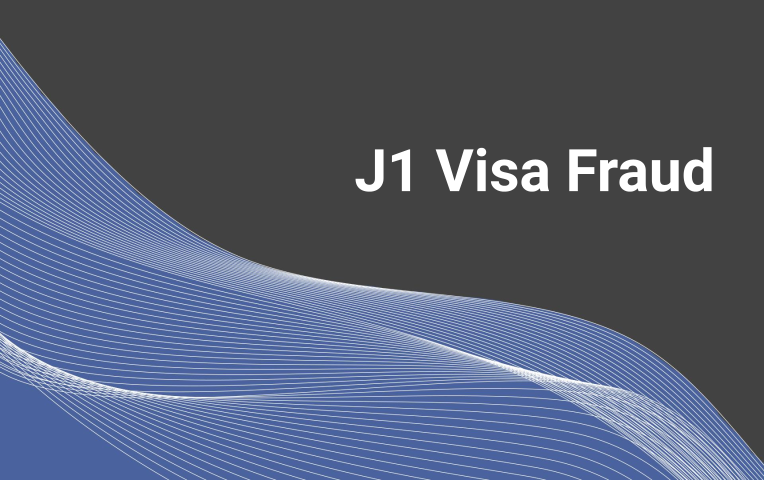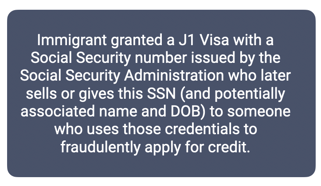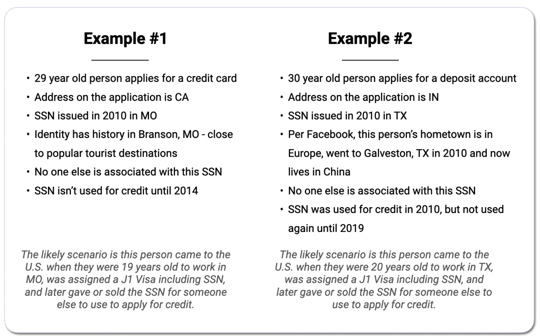Blog post
J1 Visa Fraud
SentiLink
Published
March 18, 2021

Update: we now consider the term "J1 Visa Fraud" outdated, as this fraud MO involves more than just J1 visa recipients. Please refer to our latest blog post on Assumed Identity Abuse for a 2025 update on this growing fraud trend.
Search the term “J1 Visa Fraud” in Google and an eclectic list of results are returned.
- The top result is from Travel.State.Gov warning about emails and letters being sent to Visa applicants by fraudsters posing as the U.S. government.
- The 2nd result from Visitorguard.com explains a concept they called J1 Visa abuse where a foreign student travels to the U.S. to work on a J1 Visa, but ends up working in inhumane conditions.
- The 3rd result is a news story from the U.S. Justice Department reporting that four researchers were charged with Visa fraud after lying about their status as members of The People’s Liberation Army of China.
Clearly there are many ways to interpret the meaning of J1 Visa fraud. This post details the J1 Visa fraud that is a type of identity fraud committed by immigrants who leave the U.S.
J1 Visa Fraud Defined

What is a J1 Visa?
A J1 Visa is a type of temporary allowance by the U.S. government for a non-U.S. citizen to study, or work or come to the U.S. for related reasons. They are issued a Social Security number as part of their Visa. Approximately 300,000 foreign visitors from 200 countries per year are issued J1 Visas.
There are geographic areas that are known for hosting J1 Visa workers. Myrtle Beach, SC, Rehoboth Beach, Delaware, Coney Island, NY are a few examples. These specific places are ones where the influx of tourists in the summer months necessitate businesses to hire extra help, often in the form of immigrants happy to work for little pay in exchange for the opportunity to live in the U.S. for a defined period of time.
J1 Visa Fraud
J1 Visa fraud is something we’re seeing with increasing frequency here at SentiLink. The risk for lenders is that the applicant using the J1 Visa credentials is unlikely to repay the loan since the credentials used for the loan belong to someone who has returned to their home country.
These are the characteristics of applications that are potentially J1 Visa fraud:

Consider these examples detected by SentiLink.

Treatment of J1 Visa Fraud
J1 Visa fraud is difficult to detect. Sometimes these identities are mistaken for synthetic fraud because it’s hard to find evidence that the credentials are that of a real person, and there’s an inconsistent pattern in the use of credit. Technically, it is a form of ID theft. When suspected, the best treatment is to verify a government issued ID matches the credentials on the application. Driver’s license is best, but it’s not uncommon for fraudsters to falsify documents, so a document verification solution is needed to make sure the ID presented is legitimate.
By monitoring for the characteristics outlined above, banks and lenders can minimize their losses from this growing fraud risk.
Related Content
.png)
Blog article
February 20, 2026
Romance Fraudsters Have Found a New Target: Your Home Equity
Read article
Blog article
February 19, 2026
Introducing SentiLink Intercept: Precision Tools for High Stakes Fraud Decisions
Read article
Blog article
December 2, 2025